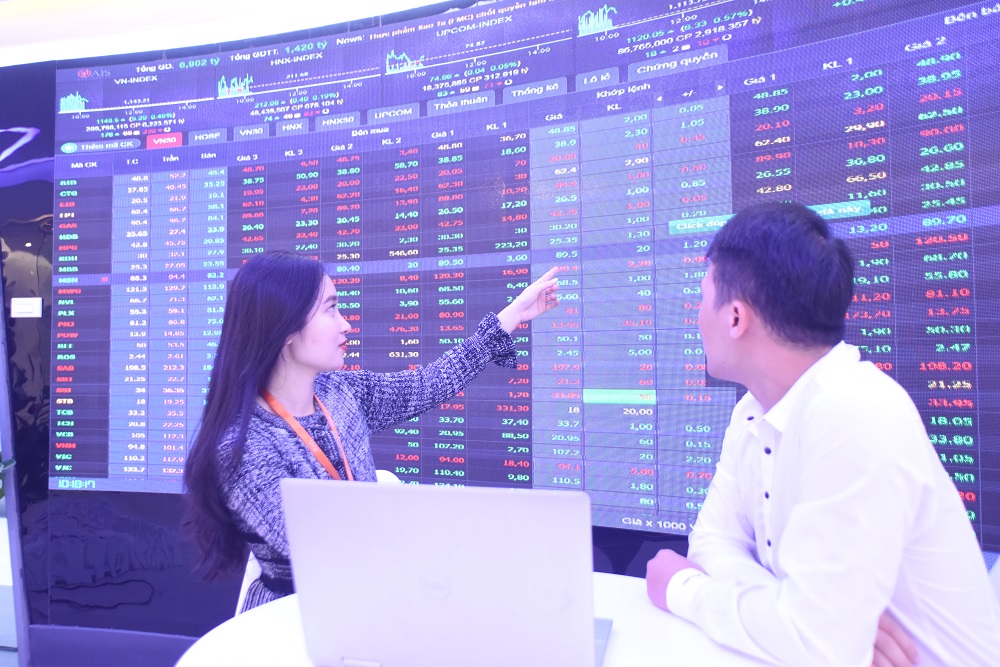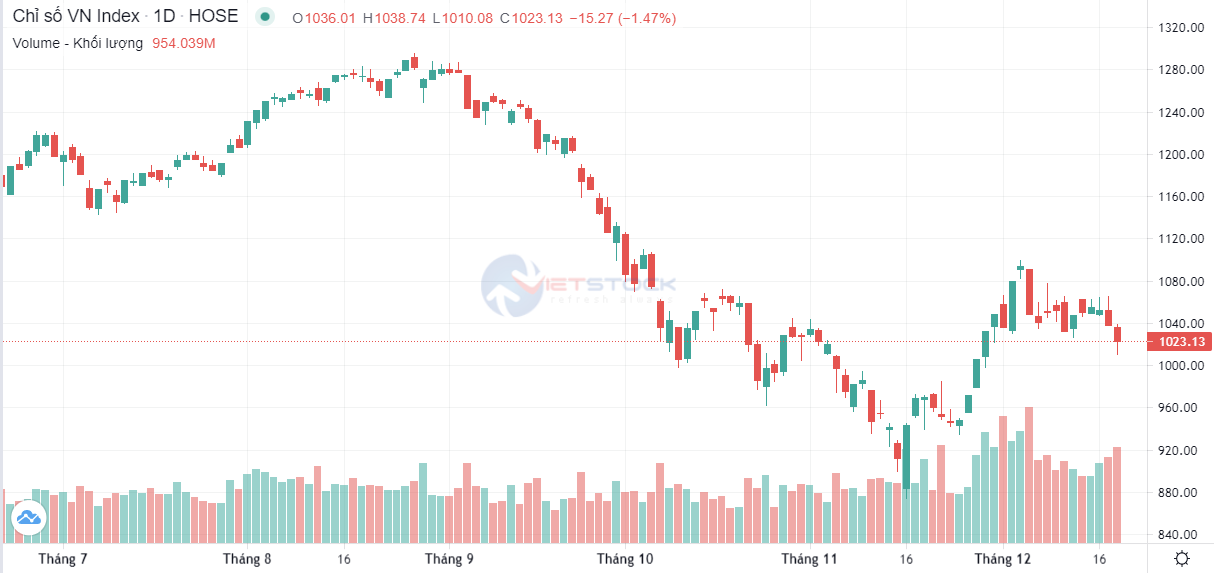What the Vietnam stock market swings in 2022 tell us?
The Vietnam stock market has experienced ups and downs as a result of a variety of factors.

Domestic retail investors' newly opened securities accounts have decreased since June, but the 10M22 number has increased 121% year over year to 2,401,722 accounts.
>> Stocks swing low to attract investors
The VN-Index in downtrend
Following positive sentiment in 2021, the Vietnam stock market started 2022 by reaching an all-time high, with the VN-Index rising 2.0% to 1,528.6 points within the first week of the year. Even when outside risks appeared, such as the Fed signaling a rate increase and Russia beginning the military operation in Ukraine, the Vietnam stock market still stayed firm and fluctuated in the 1,450–1,550 range.
However, things started to get worse when several tycoons of large corporations were arrested for manipulation in the stock and bond markets. The VN-Index tumbled 23.1% to 1,172 points in just one month after those events took place due to panic selling momentum as well as "margin call" action across the market.
Since the beginning of September 2022, the VN-Index has continued to fall, eventually reaching a low of 952.1 points on November 22, 2022. The HNX-Index and UPCOM-Index both fell by 58.9% and 39.3% year on year, respectively.
The VN-Index fell 36.5% year on year in 2022, trailing all Southeast Asian stock markets, including Indonesia (JCI Index: 6.8% ytd. ), Singapore (STI Index: 4.3% ytd. ), Thailand (SET Index: - 2.6% ytd. ), Malaysia (FBMKL CI Index: -8.1% ytd. ), and the Philippines (PCOMP Index: -9.7% ytd.
Almost all sectors recorded negative performance in 2022, except for water and gas supply and beverages. Notably, financial services became the worst industry performer in 2022 with a deep slump of -61.0% ytd, followed by steel manufacturers (-59.3% ytd), construction (-54.7% ytd), chemicals (-50.5% ytd), and real estate (-48.6% ytd). On the contrary, defensive sectors including water and gas supply and beverage were the only two positive performers, surging 9.7% ytd and 13.8% ytd, respectively.
>> Shares soar on the rise of pillar stocks
In VNDirect's view, there are three key issues that have distressed Vietnam’s stock market in 2022, namely: (1) the rising of interest rates; (2) the tightening of credit to riskier segments, i.e., property and securities investment; and (3) the corporate bond market, which witnessed a crisis in investor confidence after the incidents of Tan Hoang Minh and Van Thinh Phat, leading to difficulties in raising capital in the corporate bond market.

Since the beginning of September 2022, the VN-Index has continued to fall, eventually reaching a low of 952.1 points on November 22, 2022.
Market liquidity reduction
Average daily trading value (ADTV) in 2022 sank 22.3% yoy to VND20,862bn. The daily trading value on HOSE edged down to VND17,696bn/session (-19.6% yoy), while the daily trading value on HNX and UPCOM also reduced to VND2,023bn/session (-36.0% yoy) and VND1,142bn/session (-32.8% yoy), respectively. Domestic retail investors' newly opened securities accounts have decreased since June, but the 10M22 number has increased 121% year over year to 2,401,722 accounts.
The daily trading value of VNMID (representing mid-caps) rose 11.3% year over year. The daily trading value of VN30 (representing large-caps) and VNSML (representing small-caps) decreased 36.1% and 8.0% year over year, respectively. Banking, steel, construction materials, and brokerage witnessed the strongest decline in liquidity in 2022. Meanwhile, only retail, chemicals, and electricity were sectors that had a positive increase in liquidity in 2022.
Foreign investors aggressively net sold on the Vietnam equity market with VND6,614bn (US$283m) in 1Q22 following the accelerating Russia-Ukraine dispute and the Fed's first fund rate hike.Then, beginning in April, foreign investors became more active, aggressively buying on the market's dip in November.All told, foreigners bought about VND6,821bn across 3 exchanges in 11M22. The strong net inflow of foreign investors was largely driven by the ETF inflow of VND11,421bn (mainly from the VNDDiamond ETF and Fubon ETF). The proportion of foreign investors to daily trading value has widened from 6.2% to 14.8% of total trading value.
"The signals of both US interest rates and global inflation peaking will trigger foreign investors to seek growth with a risk appetite." "Additionally, the recent downgrade of tech stocks has resulted in a shift into traditional businesses, which is the catalyst for Vietnam, where banks, property, power, and consumers dominate market capitalization," said VNDirect.








